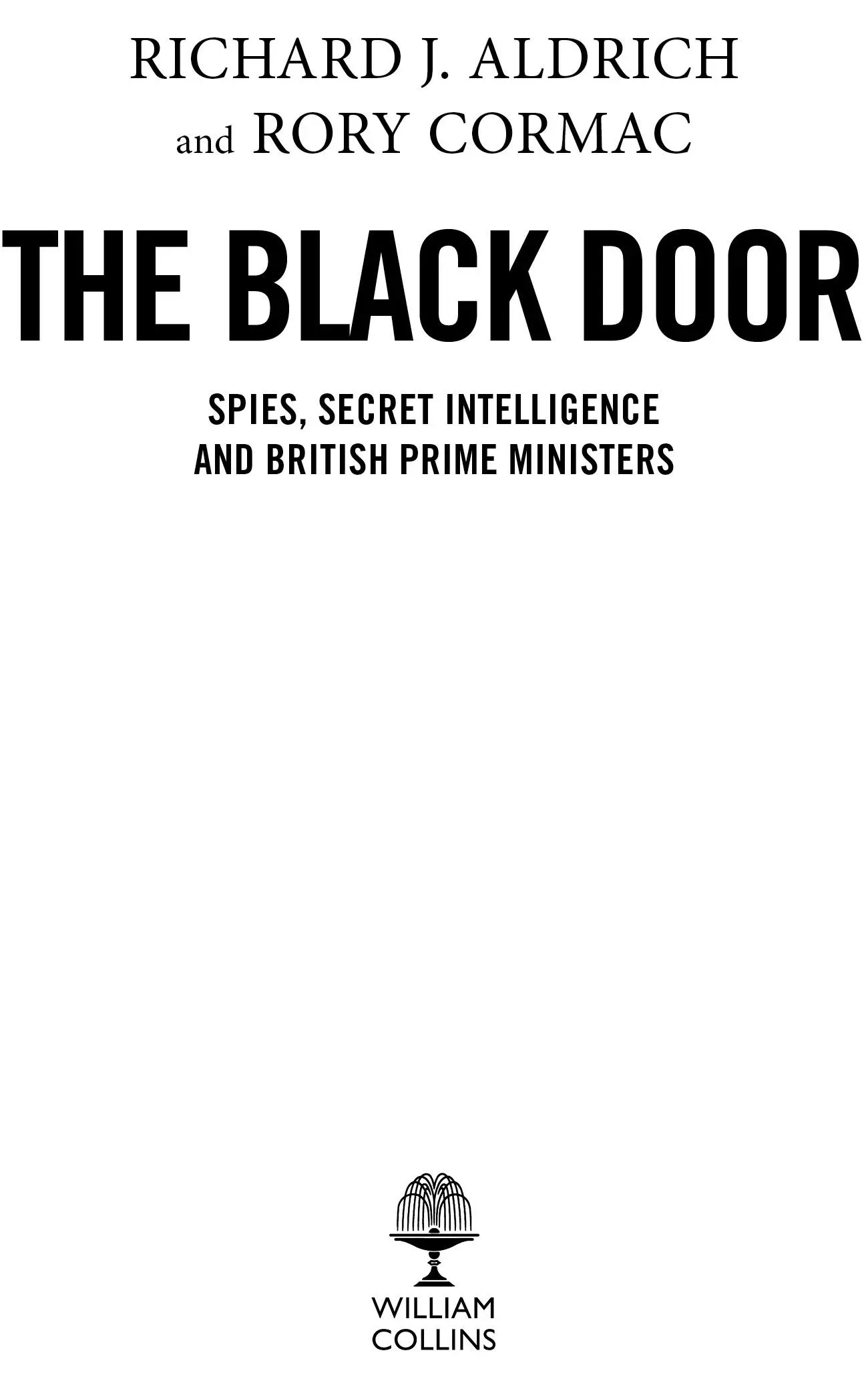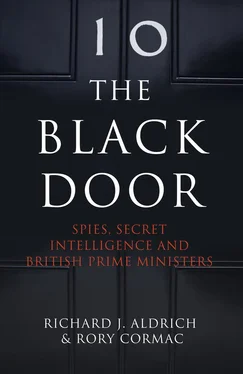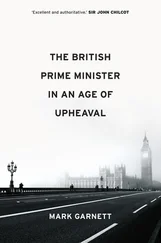
William Collins
An imprint of HarperCollins Publishers
1 London Bridge Street
London SE1 9GF
www.WilliamCollinsBooks.com
First published in Great Britain by William Collins in 2016
Copyright © Richard J. Aldrich and Rory Cormac 2016, 2017
Richard J. Aldrich and Rory Cormac assert the moral right to be identified as the authors of this work
A catalogue record for this book is available from the British Library
Cover photograph © Dan Kitwood/Getty Images (door)
Cover design by Kate Gaughran
The author and publishers are committed to respecting the intellectual property rights of others and have made all reasonable efforts to trace the copyright owners of the images reproduced, and to provide appropriate acknowledgement within this book. In the event that any untraceable copyright owners come forward after the publication of this book, the author and publishers will use all reasonable endeavours to rectify the position accordingly.
All rights reserved under International and Pan-American Copyright Conventions. By payment of the required fees, you have been granted the non-exclusive, non-transferable right to access and read the text of this e-book on screen. No part of this text may be reproduced, transmitted, down-loaded, decompiled, reverse engineered, or stored in or introduced into any information storage and retrieval system, in any form or by any means, whether electronic or mechanical, now known or hereinafter invented, without the express written permission of HarperCollins.
Source ISBN: 9780007555475
Ebook Edition © April 2016 ISBN: 9780007555451
Version: 2017-03-29
To Joanne and Libby
(two espionage experts)
Cover
Title Page
Copyright
Dedication
Abbreviations and Acronyms
Introduction
PART ONE: CREATING SECRET SERVICE
1 Herbert Asquith, David Lloyd George and Andrew Bonar Law (1908–1923)
2 Stanley Baldwin and Ramsay MacDonald (1923–1937)
PART TWO: THE WINDS OF WAR
3 Neville Chamberlain (1937–1940)
4 Winston Churchill (1940–1941)
5 Winston Churchill (1942–1945)
PART THREE: THE HOT COLD WAR
6 Clement Attlee (1945–1951)
7 Winston Churchill (1951–1955)
8 Anthony Eden (1955–1957)
9 Harold Macmillan (1957–1963)
10 Alec Douglas-Home (1963–1964)
PART FOUR: DÉTENTE AND DISSENT
11 Harold Wilson (1964–1970)
12 Edward Heath (1970–1974)
13 Harold Wilson (1974–1976)
14 James Callaghan (1976–1979)
15 Margaret Thatcher (1979–1990)
PART FIVE: TURBULENT TIMES
16 John Major (1990–1997)
17 Tony Blair (1997–2007)
18 Gordon Brown (2007–2010)
19 David Cameron (2010–2016)
Conclusion: Prime Ministers and the Future of Intelligence
Appendix I: Key Officials Since 1909
Appendix II: Key Intelligence and Security Machinery
‘Eat Before Reading’: A Short Essay on Methodology
Picture Section
Acknowledgements
Notes
Bibliography
Index
About the Authors
About the Publisher
Abbreviations and Acronyms
‘C’ – Chief of the British Secret Intelligence Service (SIS)
CCC – Churchill College Cambridge
CIA – Central Intelligence Agency [American]
CIGS – Chief of the Imperial General Staff
CND – Campaign for Nuclear Disarmament
Comint – Communications intelligence
Comsec – Communications security
COS – Chiefs of Staff
CPGB – Communist Party of Great Britain
CSC – Counter Subversion Committee
CX – Prefix for a report originating with SIS
DCI – Director of Central Intelligence, the head of the CIA
DIS – Defence Intelligence Staff
DMI – Director of Military Intelligence
DNI – Director of Naval Intelligence
D-Notice – Defence Notice to the media covering security issues
DOPC – Defence and Overseas Policy Committee
Elint – Electronic intelligence
FBI – Federal Bureau of Investigation [American]
FCO – Foreign and Commonwealth Office
GC&CS – Government Code and Cypher School
GCHQ – Government Communications Headquarters
GOC – General Officer Commanding
GRU – Soviet Military Intelligence
IRD – Information Research Department of the Foreign Office
ISC – Intelligence and Security Committee
ISI – Inter-Services Intelligence [Pakistan]
ISP – Internet Service Provider
JAC – Joint Action Committee
JIC – Joint Intelligence Committee
JTAC – Joint Terrorism Analysis Centre
LHCMA – Liddell Hart Centre for Military Archives
MI5 – Security service
MI6 – Secret Intelligence Service (also SIS)
MIT – Turkish Intelligence Service
MoD – Ministry of Defence
NATO – North Atlantic Treaty Organisation
NSA – National Security Agency [American]
NSC – National Security Council [American]
NUM – National Union of Mineworkers
OSS – Office of Strategic Services [American]
PKI – Indonesian Communist Party
PLO – Palestine Liberation Organisation
PSIS – Permanent Secretaries’ Committee on the Intelligence Services
PUSC – Permanent Under-Secretary’s Committee of the Foreign Office
PUSD – Permanent Under-Secretary’s Department
PV – Positive vetting
RAW – Research and Analysis Wing [Indian]
RUC – Royal Ulster Constabulary
SAS – Special Air Service
SAVAK – Iranian Security Service
SBS – Special Boat Service
Sigint – Signals intelligence
SIS – Secret Intelligence Service (also MI6)
SOE – Special Operations Executive
TASS – Soviet Press Agency
TUC – Trades Union Congress
Ultra – British classification for signals intelligence
UKUSA – UK–USA signals intelligence agreements 1948
WMD – Weapons of Mass Destruction
This is my own true spy story …
Winston Churchill 1
On Saturday, 6 September 1941, Winston Churchill stood on a pile of bricks outside the newly built Bletchley Park. Here, in the Buckinghamshire countryside, the mysteries of the German Enigma encryption machine were being patiently unravelled. Each day the codebreakers’ product was fed to a prime minister in Downing Street who was beside himself with anticipation. Now, with some emotion, Churchill expressed his profound gratitude and explained to the codebreakers how they had already transformed decision-making at the highest levels, and with it the course of the Second World War. A decade later – and now approaching his eightieth year – Churchill was back in Downing Street. His keen interest in intelligence had not diminished. In 1952, top-secret spy flights took pictures over Moscow at the express instruction of the prime minister. Over Minsk and Lvov, his airborne intelligence emissaries were greeted by a formidable wall of Soviet anti-aircraft fire.
Churchill also relished covert action. In 1953, he positively purred with enthusiasm over a joint CIA–MI6 plot that had overthrown the government of Iran. This underlines the way in which intelligence was not just a secret window on the world for Britain’s leaders, but also a discreet means of manipulating it. In 1956 Churchill’s successor, a furious Anthony Eden, neurotic and plagued by ill-health, barked into a telephone that he wanted Egyptian President Nasser destroyed by MI6. Harold Macmillan’s government drew up what he called a ‘formidable’ plan for Syria which involved assassinating several leaders. Alec Douglas-Home added Indonesia’s President Sukarno to the list of foreign leaders that prime ministers wished to see toppled using Britain’s intelligence agencies. However, when Harold Wilson asked for the liquidation of the Ugandan dictator Idi Amin, officials responded with horror, and refused to investigate the options. When secret intelligence took extreme risks, it was usually at the direction of Downing Street.
Читать дальше













